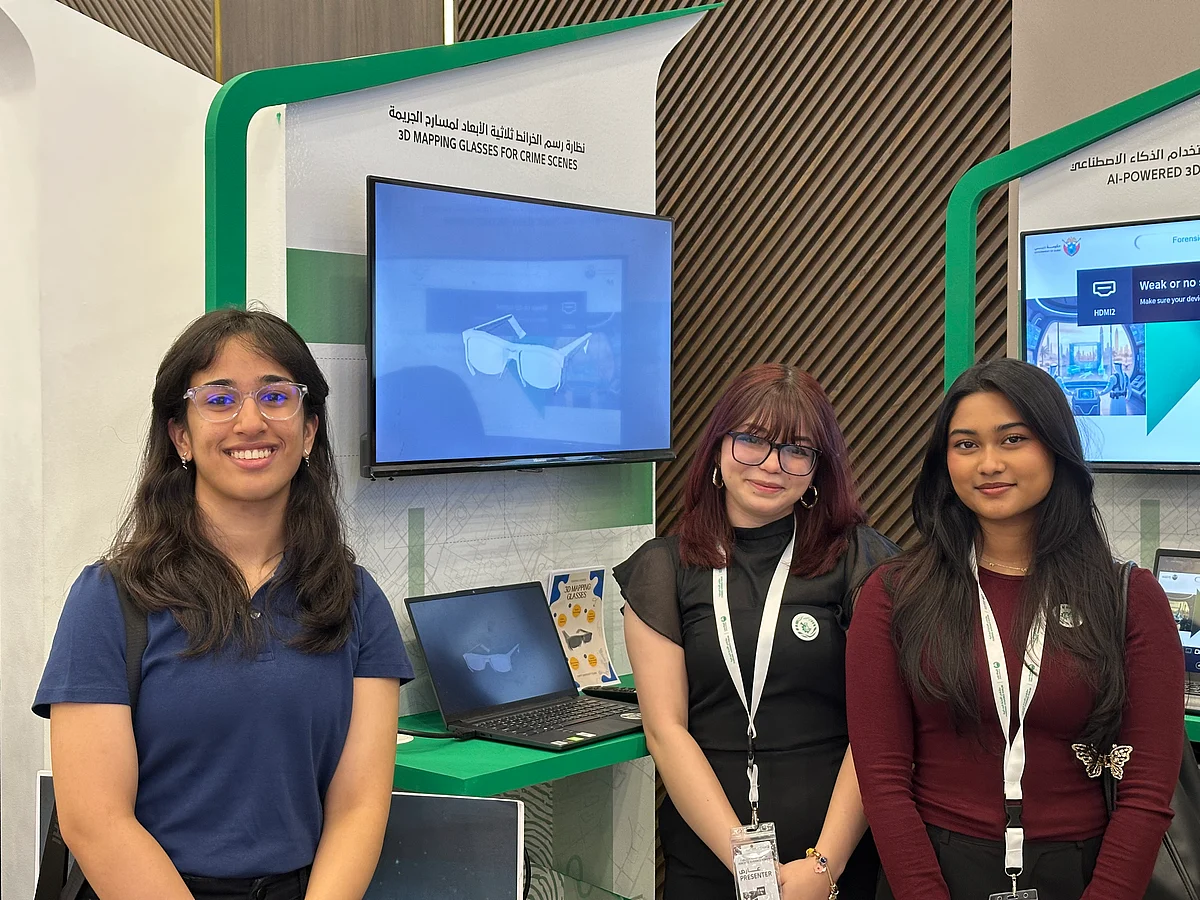
3D Crime Scene Glasses, Drug-Detecting Patches: UAE Students Display Forensic Tech At Forum
The future of forensic science was on full display in Dubai on Thursday as university students from across the UAE presented groundbreaking technologies, including AI-powered 3D mapping glasses that could revolutionise how crime scenes are investigated.
The innovations were showcased at the Forensic Evidence Forum, hosted by the Dubai Police General Department of Forensic Science and Criminology to celebrate World Science Day.
Recommended For YouHeld under the theme 'Innovate. Connect. Solve.', the event highlighted the critical role of young minds in building the future of forensic science.
Stay up to date with the latest news. Follow KT on WhatsApp Channels.
Students from Amity University Dubai developed 3D Mapping Glasses for Crime Scene Reconstruction. This project, presented by team members Khadija Ashraf, Cerusha Pereira, Neola D'Souza, and Rim Issa, aims to replace traditional sketching and photography with a far more accurate and efficient system.
“Our project aims to apply 3D mapping glasses to reconstruct crime scenes in a more accurate and more efficient way,” a student presenter explained.
The glasses are equipped with LiDAR sensors to create instant 3D replicas of a scene and use AI to automatically tag evidence like weapons, casings, or footprints based on voice commands from the investigator.
The system also supports“twin live viewing", allowing experts at headquarters to collaborate in real-time and guide officers at the scene. The team hopes future prototypes will even support VR reenactments for courtroom presentations.
Drug-detection patchesAnother standout innovation came from fellow Amity University student Farhana Shaju, who presented a Smart Wearable Biosensor Patch for rapid, on-site drug detection.
The patch analyzes sweat to screen for drugs of abuse in under five minutes, a significant leap from traditional methods.
“It helps us to detect impaired drivers and can also be used for a fresh cadaver screening,” Shaju explained. While lab confirmation is still the gold standard, the patch provides a crucial tool for police officers to get timely results and ensure public safety.
Helping the elderlyFrom Al Ain University, a team of senior software engineering students Abrar Hamdi, Mohammed Tariq, Shahd Adel, and Umama Binte Sayed unveiled iCare, an AI-powered app to help the elderly and people with disabilities manage their medication.
The system uses OCR to read prescriptions, a chatbot for assistance, and sends intelligent reminders to prevent missed doses.
“If you miss a reminder, it will reschedule it again and send you a notification,” said presenter Abrar Hamdi.“We built it all from scratch, including training the model.”
A second team from Al Ain University, Tala Mansoor and Zahra Alhashmi, also worked on an AI-Powered 3D Crime Scene Reconstruction project, further emphasising the focus on advanced digital documentation in modern forensics.
The forum underscored Dubai Police's commitment to fostering innovation and collaborating with academic institutions to build a safer, smarter future.
By empowering the next generation of forensic leaders, the event provided a powerful glimpse into how technology will continue to transform the pursuit of justice.

Legal Disclaimer:
MENAFN provides the
information “as is” without warranty of any kind. We do not accept
any responsibility or liability for the accuracy, content, images,
videos, licenses, completeness, legality, or reliability of the information
contained in this article. If you have any complaints or copyright
issues related to this article, kindly contact the provider above.


















Comments
No comment